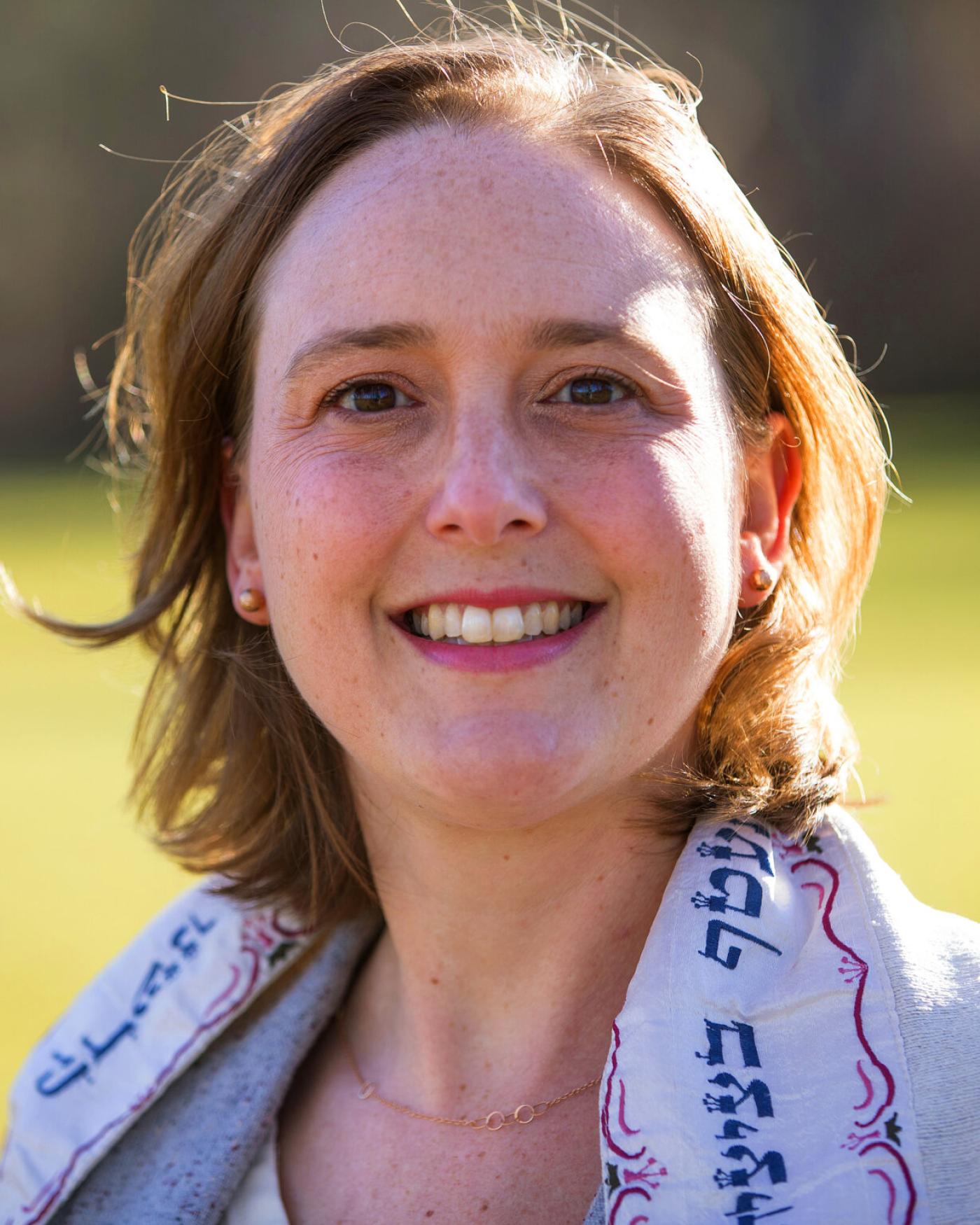Well, Tikkun Olam is the Jewish value of bringing healing to our broken world. And in many ways, Temple Beth Ora is modeled like a traditional Jewish community. And I'm thinking of rabbinic texts that talk about circles, of concentric circles of giving. And from a traditional Jewish perspective, first, you're responsible for the needs in your family, of your local Jewish community, of the local broader community, and then working outwards. Now, these are texts that were written for a more ancient societal structure. And now we find ourselves living in a global village, right? We're hyper-aware of how interconnected we are during this pandemic. So, leaning on tradition, but also asking ourselves that question, what is our responsibility in a more global society as one teeny tiny Jewish Community located in Everett? So first and foremost, we create a culture of care within our community. And it was traditional that when Jewish communities from the Old World were establishing themselves in the New World, oftentimes the burial society was actually the first institution to be established. And I would say that within our Beth, our community, we are amazing at caring for our folks who are experiencing loss, and we have a dynamic bereavement committee. Right. Like, we not only make sure that there's food at the Shiva Minyan, but we also make sure that, like, things are cleaned up afterwards, to you know, really beautiful, simple attention to detail, and I would say that after that bereavement piece, our community does a really good job of checking in on one another and making sure that individual needs are met. Um, during the pandemic, we made three rounds of wellness checks to the community at large, and we're able to do that because we're only 125 families. You know, that's our priority. I have a dynamic Mitzvah Corps team that helps care for our people. And we utilize Helping Hands, websites, meal trains, those sorts of things, but folks are always letting me know who could use a wellness call. We also know our limitations as a small community, that we maintain really nice connections with Jewish Family Services in Seattle, which also serves Snohomish County, and other social service organizations, making sure that immediate needs for our community members are met. I would say that something that probably makes us a little bit different than the urban Seattle congregations is that a lot of our families and individuals choose to live in Snohomish County because they've been priced out of Seattle. And we have a lot of congregants who are of humble means; they're still fairly low cost of living in north Snohomish County and Marysville, but whereas I would say, I've been with the community for five years, and I served a congregation in Orange County, California, before coming here. And, I never had to deal with housing insecurity until I landed in Snohomish County. That's something that, unfortunately. Right. But, with a lot of dignity, we've helped a couple of community members who've been experiencing homelessness and have made sure that they get set up with safe housing, and Melanie, I think that our approach to Tikkun Olam starts inwards. So I'm thinking about your question about our diversity, equity, and Inclusion task force. First, I think it's important to know that Beth Ora is unique, that we're an egalitarian community. And I'm not just talking about like, women's roles in leadership. I'm talking about like, organizational structure. I, we are not a congregant or excuse me, we're not a rabbi driven community. I work in partnership with our lay leaders. Sometimes folks like to look at a family systems model by looking at a small congregation, but you can't simply name like the matriarch or patriarch, right? You know, the avatar of Arc. It's not just one couple. It's like a handful of people who are incredibly, incredibly invested. Um, so one of our amazing members, Sonia Siegel Wexler, founding member of our community organizing powerhouse, has also been active with leadership in the Union for Reform Judaism. Um, she created, with a handful of others, a multiple-month challenge of not looking externally at how we can address diversity, equity, and inclusion, but really looking inward. And I'm thinking about different pieces that I've read during this time, where, right, we as an American society are looking at diversity, equity, and inclusion. And I was reading some resources from the coalition, which is a Jewish organization that addresses diversity. And I'm sorry that I'm forgetting the name of their, of their leader who shared this, but they shared transparently that we can't think that we as American Jews are doing it right just because we're a minority group in and of ourselves, that we have to look inwards to see how we are perpetuating ableism, how we're perpetuating Asian normativity. Right? Uh, and, um, a lot of communities have been nervous about turning right. Turning the tables and looking inwards. And I've been really proud that our community is doing this work for ourselves. I work in conjunction with the DEI task force. And, there were some, like, really specific requests which were right, like, can we highlight the voices, um, more of a more diverse swath of Jewish representation in sermons and articles, and I really feed off of their energy and feel empowered. Right? To give High Holiday sermons on the mixed multitude that's always been traveling with the Jewish community, right? We call that the era of Rav in a biblical sense. Um, and that's really been a through line of my teaching and preaching over this past year. So first, right, looking inwards before we can have the audacity to look outwards in the community.
